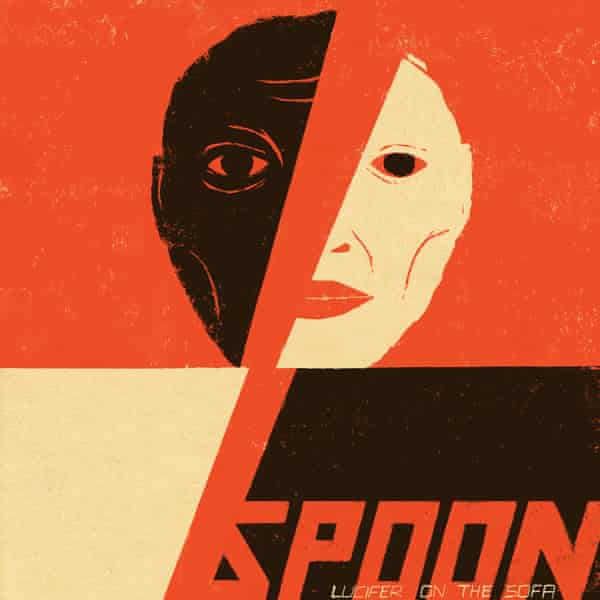Maybe the hardest trick in rock music is to do what John Peel credited as the singular ability of the Fall – to sound always different, but always the same. Plenty of groups have flourished by always being the same; plenty more artists see it as their duty to make sure each album sounds utterly unlike the one before. But to sustain a career without ever completely repeating yourself, yet never leave anyone wondering what the heck you’ve done to the group they loved, is something few manage to pull off. Ten albums and nearly 30 years into their career, Spoon still sound like Spoon: fresh, timeless and wholly in control of their work.

The Spoon sound – spacious, uncluttered but powerful, both scratchy and crystalline – is so distinct that even the fact no individual element sounds even remotely unusual makes no odds. Britt Daniel‘s voice – not powerful, but a soulful yowl – has character, but his guitar playing isn’t going to have putative ax heroes trying to work out his technique. The single most notable element – the drumming of the band’s other pole, Jim Eno – is marked by restraint, rather than flashiness. Bass, keyboards and any other elements (horns, electronics) are there to color the songs, rather than dominate. Spoon can be a bit funky, a bit poppy, a bit rocky, but always them.
The result is a career that has rather defied the expectations levied on bands who spend virtually all their career on indie labels (Spoon had a very brief and very miserable spell with Elektra early on). Though never more than a cult concern in the UK – on their last visit to London, they didn’t fill the 2,300-capacity Forum – they’ve become a significant act back home in the US, with top 10 albums and big gigs: a few years back, Daniel characterized his level of success as the kind that enables him to get tables in good restaurants without being hassled while he eats.
The advantage of sounding only like yourself, rather than part of a wave of like-minded groups, is that your sound tends to remain current, rather than being an aid to carbon-dating past pop-cultural sounds. Aside from their debut album, Telephono – a superior but generic piece of 90s alt-rock – every Spoon record sounds like it could be their current one. When the past is plundered on Lucifer on the Sofa, it is brought into Spoon’s world – so the bluesy, Stones-y piano chords of Wild‘s chorus are overlaid not on to Keith’n’Ronnie riffing, but a nervous, twitching guitar pattern that has a little of the air of U2, and they are held back until 80 seconds in for maximum impact, before the guitars ramp up further. The album opens with a cover of Smog‘s Held, so Spoonified that you really wouldn’t know it was a cover unless you knew the original, but without rendering it anywhere near unrecognizable.
Within the constraints of their music not being intended to smash down new sonic barriers, Spoon introduce dynamism by means of structure: nothing on Lucifer on the Sofa sounds like it was bashed out at the last minute; everything sounds in its place, considered. But that doesn’t make the resultant songs arid. If you think of it like architecture, that kind of attention to detail can sometimes make records sound like the lobbies of boutique hotels – elegant and tasteful and stylish and utterly characterless – whereas this sounds like a place in which you want to spend time soaking up the details.
My Babe, for example, builds so gently and naturally from its opening acoustic guitar and piano, Eno’s drums introducing propulsion before the addition of those embellishments – the shivery piano trill around 80 seconds in. When the electric guitars enter, after more than two minutes, it’s like sluice gates opening, a flood of power. It sounds triumphant, so much so you can forgive it being called My Babe.
Just 10 songs long, and without a single surplus inch around its narrow waist, Lucifer on the Sofa simply refuses to countenance the notion of having a single dull second. Production is by Mark Rankin, whose work with Queens of the Stone Age had attracted Daniel’s attention, and he adds oomph and weight but without ever overwhelming the songs: there’s as much importance in the space as there is in the chords. Truthfully, though, Spoon are so completely their own band that any producer only adds shading in the margins.
There aren’t really bad Spoon albums. There are really good Spoon albums and there are excellent Spoon albums. Lucifer on the Sofa is one of the latter. What a delight.